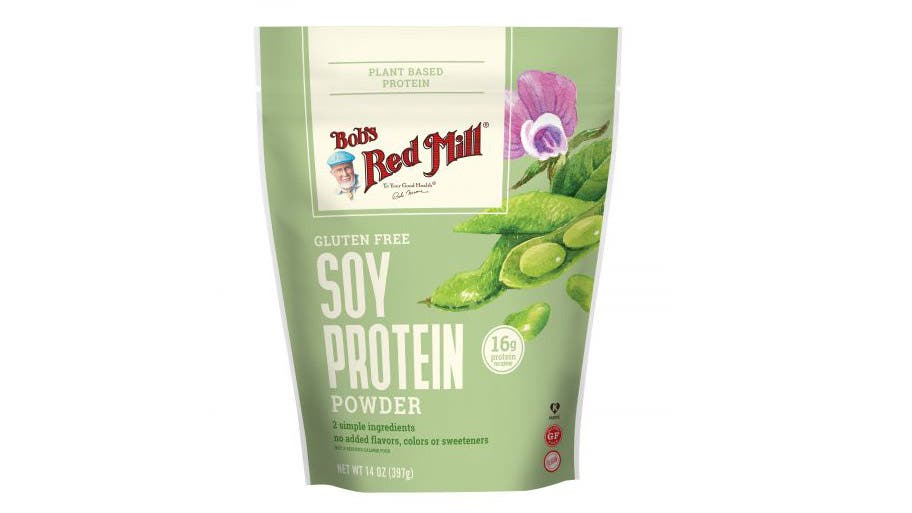Yes, You Can Make Muscle on Plant Protein
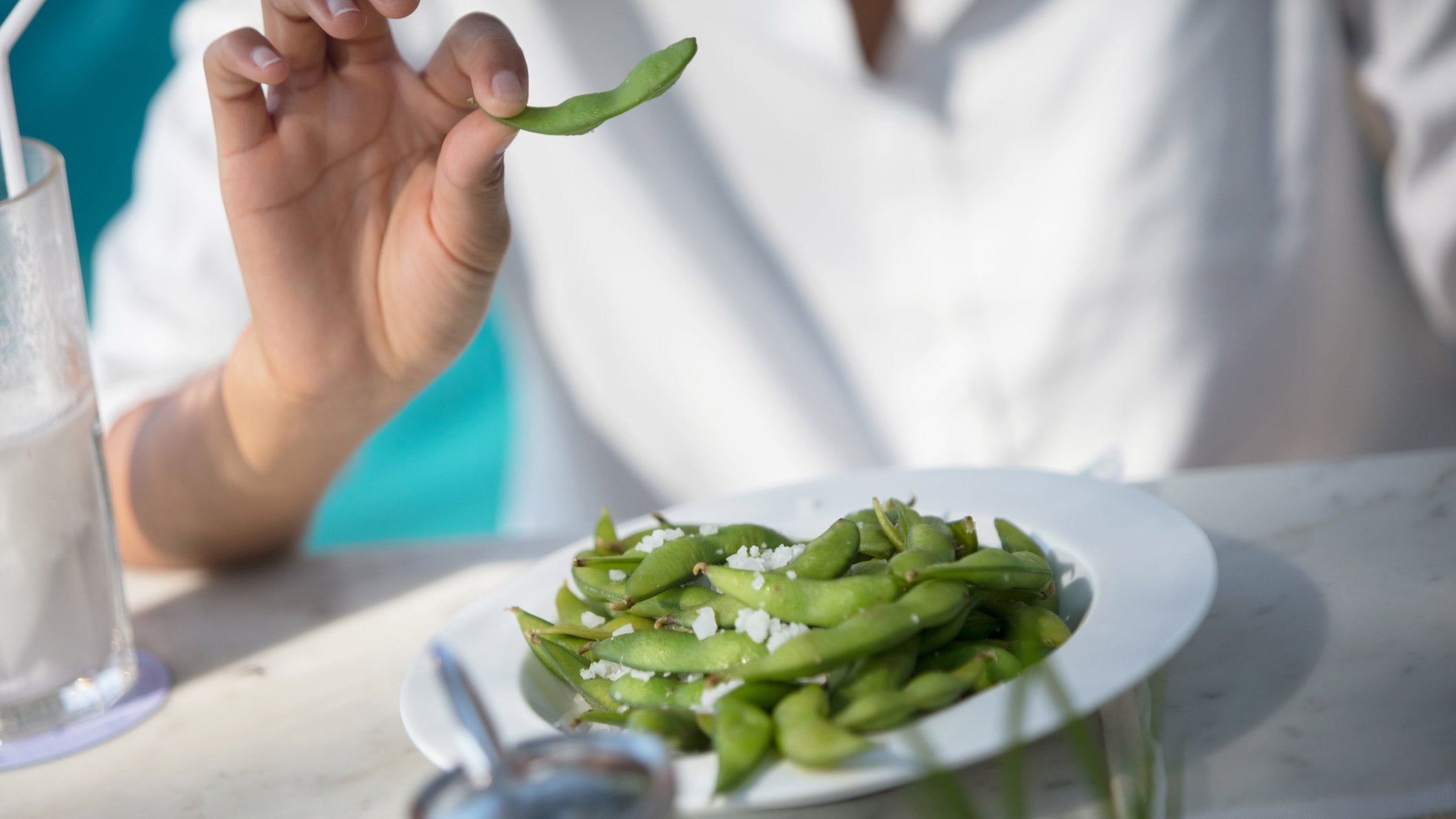
Edamame is a great choice of plant protein. (Photo: Getty Images)
Bigger muscles shouldn’t be reserved only for the bros on the gym floor. For endurance athletes like triathletes having a little extra lean body mass can improve exercise performance via several mechanisms including increased power output and reduce rates of injuries so you aren’t watching the action from the sidelines. So a priority of any fitness program should be working towards maintaining and building lean body mass.
Beyond performing exercise modalities such as weight training, which places the body under forceful stress, building muscle requires the consumption of dietary protein. Knowing this, it’s long been believed that animal-based proteins including meat and dairy are the best for building quads of steel because they supply a superior amino acid profile and have higher digestibility. But new research makes a good argument that plant-based proteins can be just as effective as their animal-based counterparts in forging bigger, stronger muscles as long as active bodies get enough.
For the study, which was published in the journal Sports Medicine, 38 men, with an average age of 26, took part in a three-month, twice weekly, resistance training program with a focus on lower body exercises. Half of the participants were long-time vegans while the other half were omnivores who included animal-based protein in their diets daily. The study subjects were provided a supplement (soy for the vegans and whey for the omnivores) to ensure they were all getting roughly 1.6 grams of protein per kilogram of body weight each day—the amount considered necessary to support muscle gains in response to weight training. (Research suggests that endurance athletes like triathletes benefit by eating at least 1.2 to 1.4 grams of protein per kilogram of body weight.) At the end of the study, both groups of men showed significant increases in leg hypertrophy (muscle growth) and strength (the amount of weight they could push on a leg press). Most certainly worth noting is that there were no significant differences between the groups for lean body mass and strength gains.
The researchers concluded that as long as we are getting the amount of total protein needed each day to support training, the source isn’t that important–plants or animals. It should be noted, however, that plant-only athletes will need to work harder to make sure they are hitting their protein goals since plant-based foods are typically less protein-dense than those of animal origin and provide a lower dose of essential amino acids, especially leucine which is particularly important in stimulating muscle repair and growth. For instance, 3-ounces of chickpeas provide 7.5 grams of protein whereas the same amount of chicken breast delivers 26 grams of protein. This study provided vegans with a soy protein supplement which is considered a “complete” plant protein because it contains a full range of amino acids, but they required more soy powder by weight to reach the 1.6 grams of protein mark than those receiving whey protein which is more concentrated in protein.
While this research needs to be repeated on other demographics including women and older athletes, it does bring to light that strong and chiseled athletes can be built on plants. Here are the plant proteins that you should add to your shopping cart, even if you’re also fueling on steak.
RELATED – Ask Stacy: Which is Better, Whey or Plant Protein?
Hemp Seeds
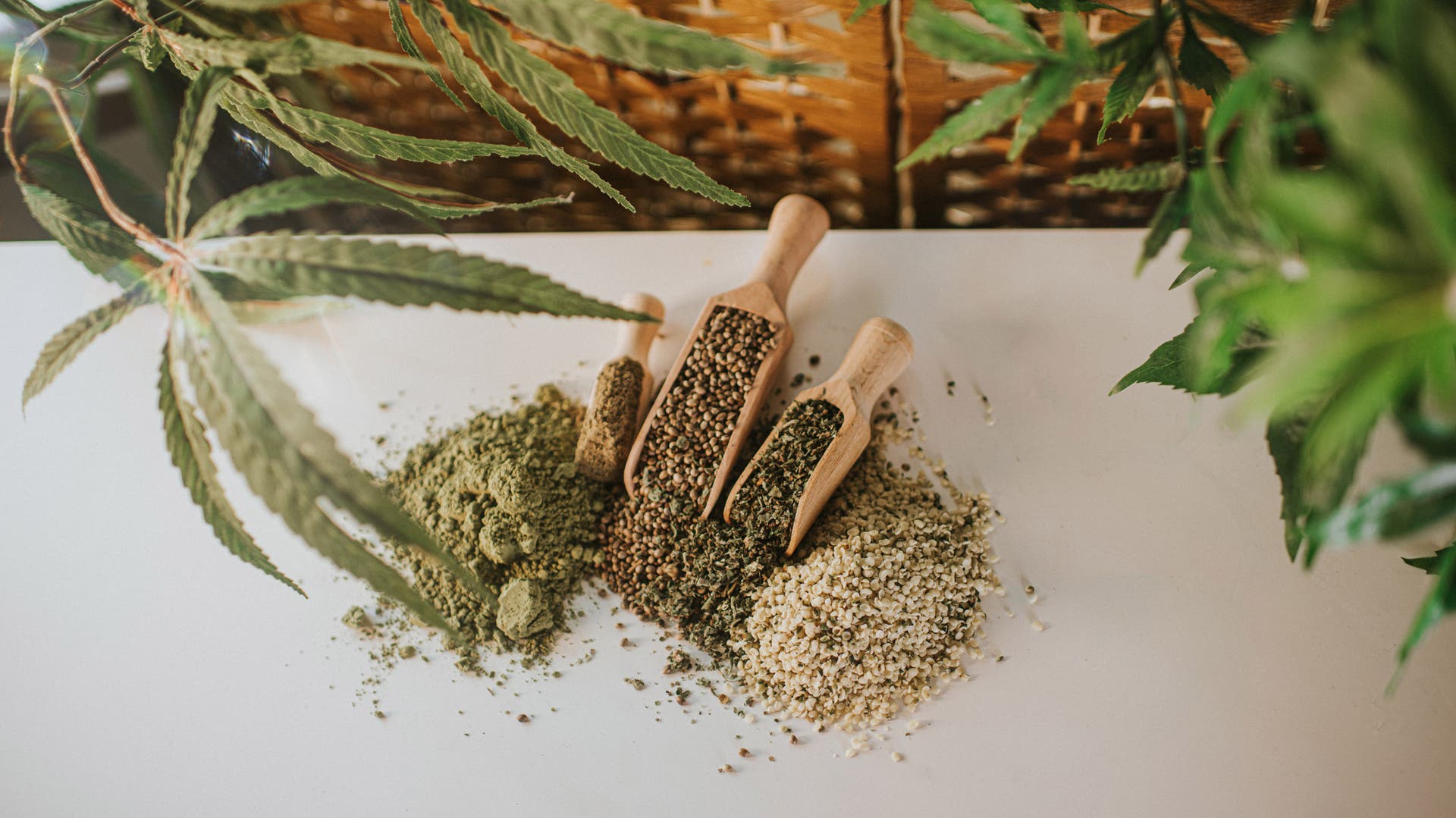
This new study found that in the build-up to a big endurance event such as a marathon you might want to consider boosting your protein intake above normal levels for better performance times during the race and a lower reduction of lean body mass after crossing the finish line. One way to do so is to sprinkle more hemp seeds into your diet. Tasting like a lovechild of pine nuts and sunflower seeds, hemp seeds (also called hemp hearts) are a stellar source of plant-based protein–roughly 10 grams in a 3 tablespoon serving. Since the protein contained within hemp seeds has been determined to be ‘complete,’ it contains all the amino acids you need to show your muscles some love. Other nutritional virtues include plenty of heart-benefiting omega-3 fatty acids and must-have minerals including iron, phosphorus, and immune-boosting zinc. And, no, they don’t contain any THC so they are just high on nutrition.
Best Buy: Nutiva Organic Shelled Hempseed ($10, nutiva.com)
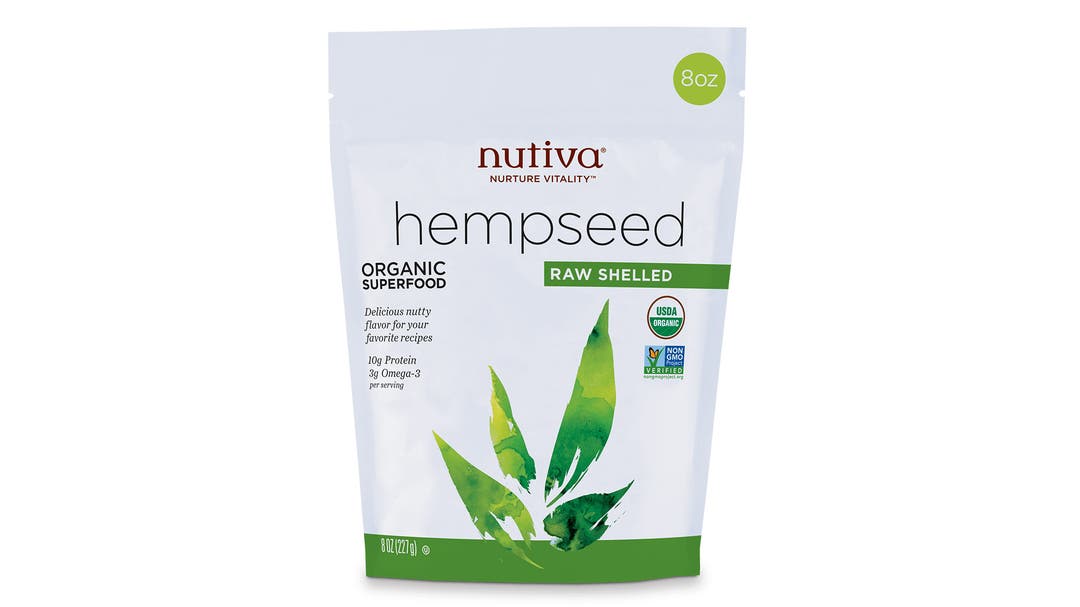
Edamame
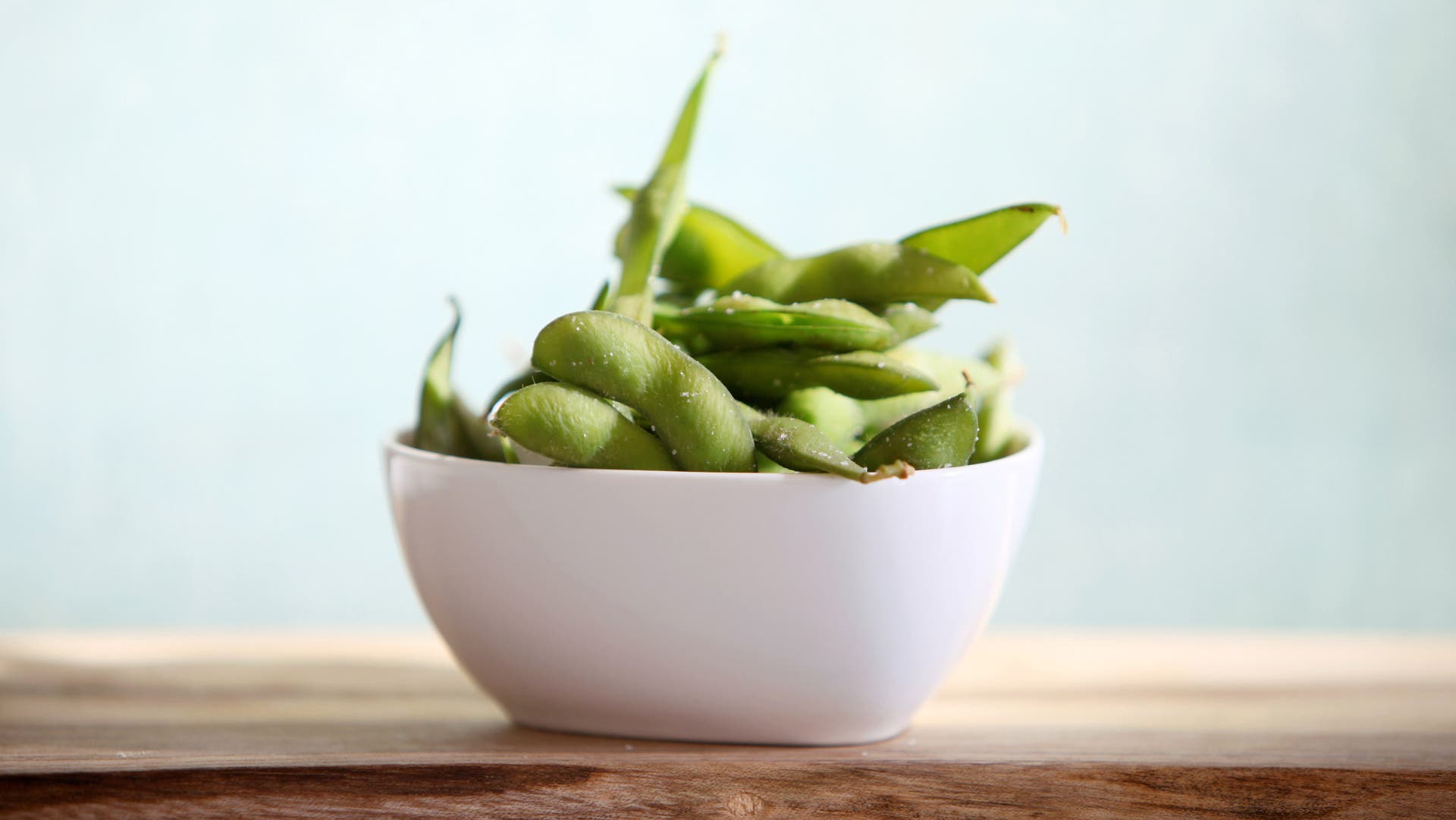
If the only time you eat these immature green soybeans is when dining out on sushi you are missing out. For few calories (about 100 in a 3-ounce serving of shelled beans) you get a nutrition payload including 18 grams of complete protein and 16 grams of fiber in a 1-cup serving. That is about half the daily need for fiber. The nutritional bounty also includes lofty amounts of folate, energizing iron, blood pressure-lowering potassium, antioxidant phytoestrogens, and vitamin K for stronger bones. Besides, a study in the Journal of Nutrition found that the more diverse your plant protein intake is the better overall quality your plant-based diet is likely to be. Boil up shelled edamame for a mega-nutritious snack or add them to soups, salads, and dips (go ahead and Google ‘green hummus’). Look for bags in the frozen food section of most supermarkets.
Best Buy: Seapoint Farms Shelled Edamame ($3.29; seapointfarms.com)
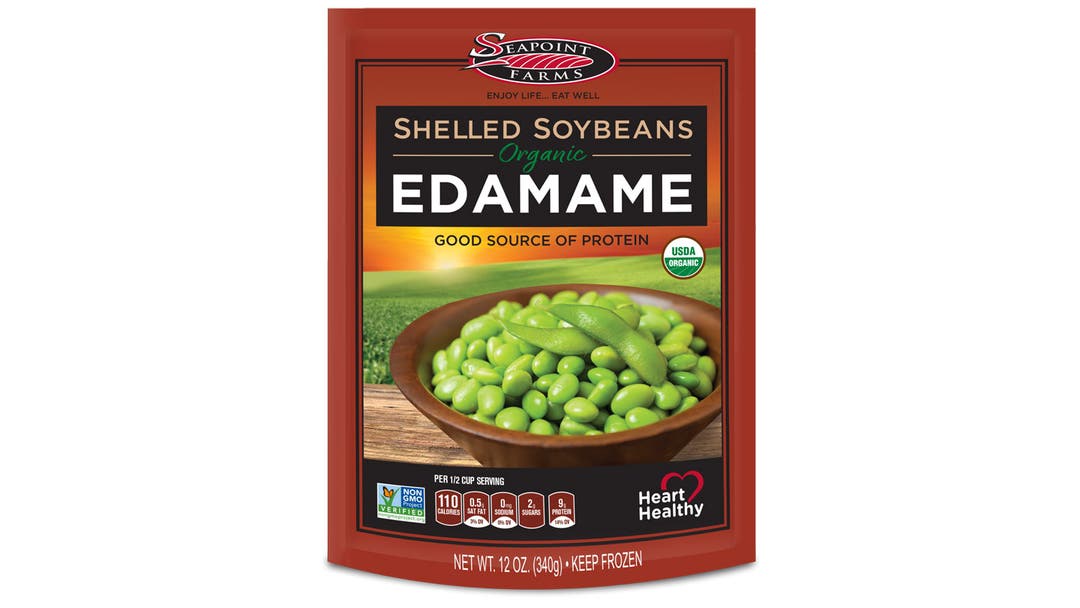
Quinoa
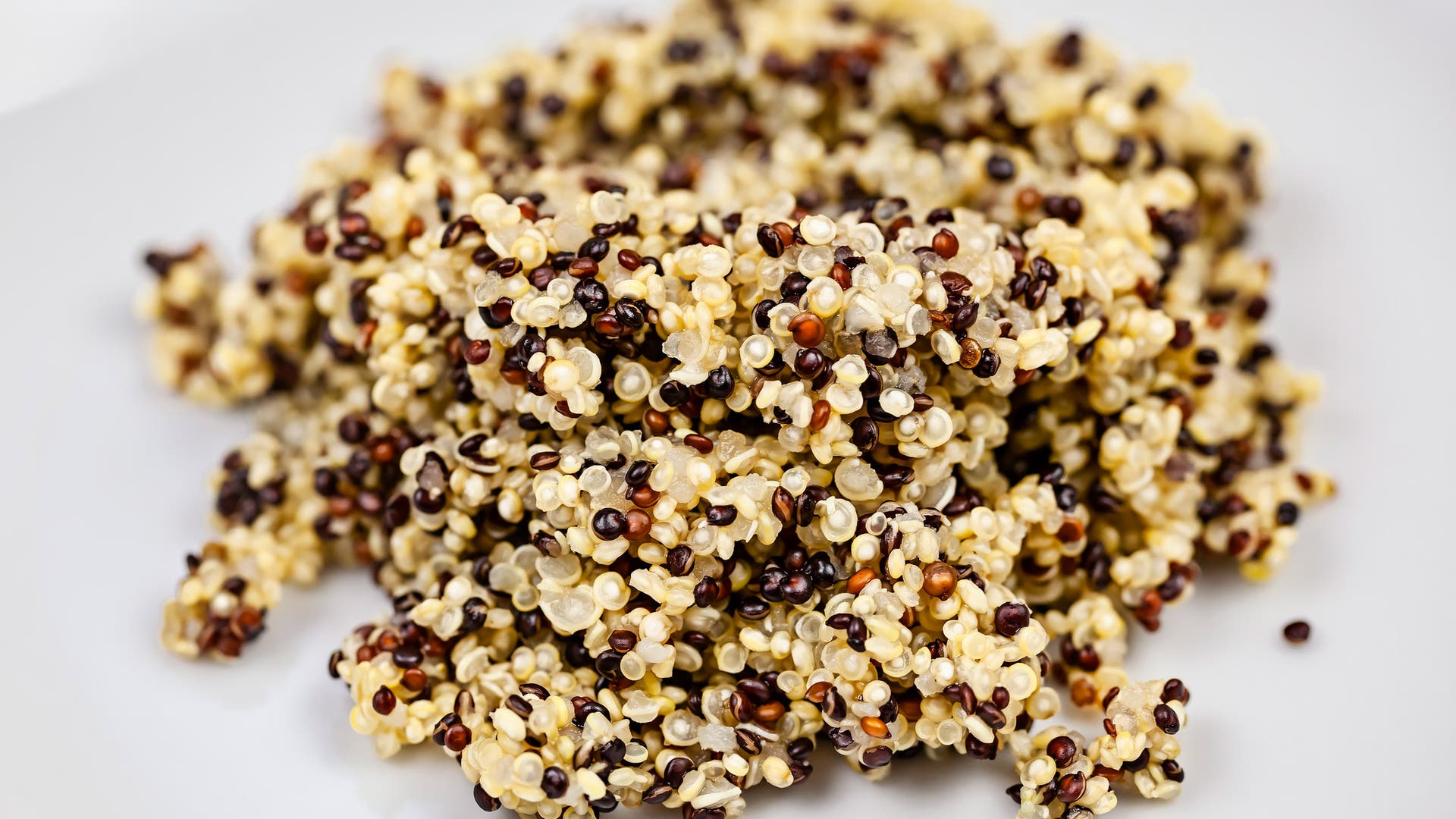
Sure, the quinoa craze may have faded but that doesn’t mean you shouldn’t include this grain in your carb-loading arsenal. Unlike many other grains including wheat, quinoa has a nice balance of essential amino acids making this South American import muscle-friendly. A cup serving of quinoa has about 8 grams of protein. A good chunk of the protein contained within quinoa seeds is in a unique form called chenopodin, which appears to have anti-inflammatory bioactive properties. If you can, look for red or black varieties of quinoa which have the added benefit of being higher in antioxidants and less grassy tasting.
Best buy: Alter Eco Organic Red Heirloom Quinoa ($7.49; alterecofoods.com)
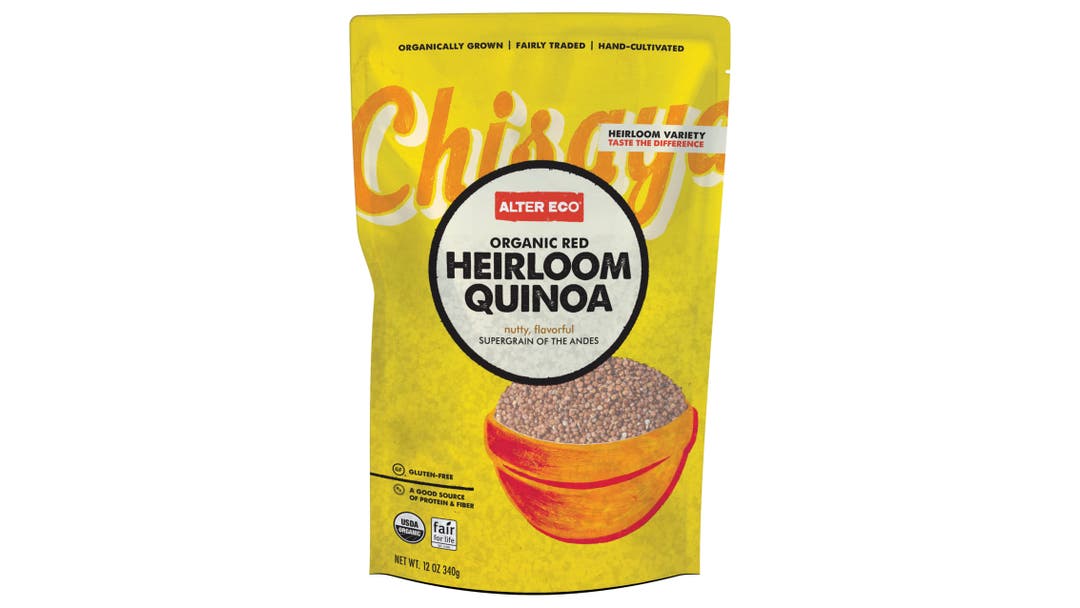
Soy Protein Powder
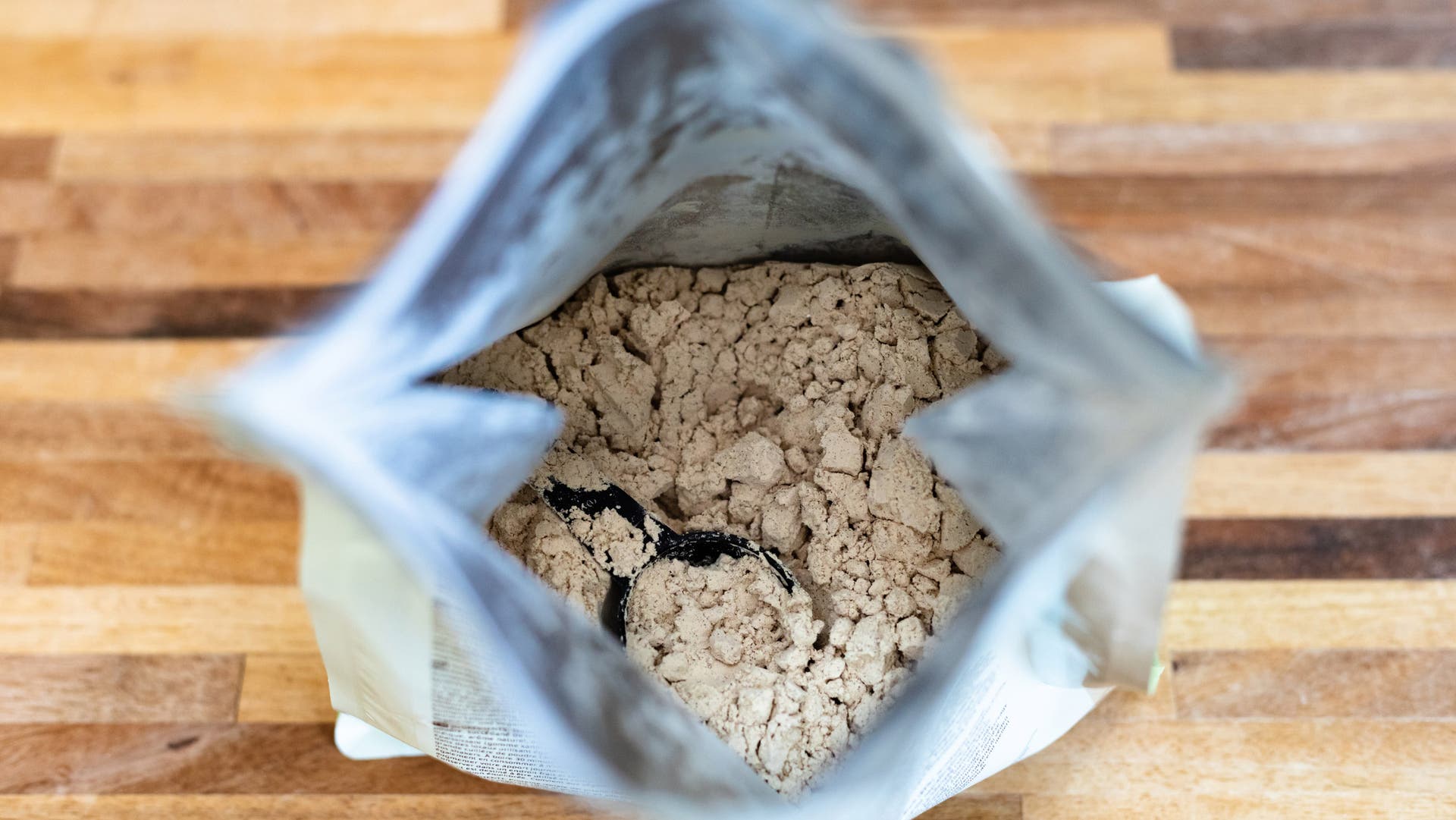
The aforementioned study provided vegan lifters with soy protein to help give them enough of this macronutrient to support training. And if you are struggling to get the amount you need purely from whole foods then sneaking some of this complete protein powder into your diet is an easy way to give you a boost. A ¼-cup serving of soy protein isolate has about 17 grams of protein, and, no guys, it won’t give you man boobs. This is the equivalent amount of total protein found in 2 cups of cooked quinoa or a cup of cooked black beans. You can blend it into post-training smoothies, but soy powder can also lend oatmeal, yogurt (plant-based if need be), or pancake batter more muscle-making powers.
Best buy: Bob’s Red Mill Soy Protein Powder ($9.49; bobsredmill.com)
